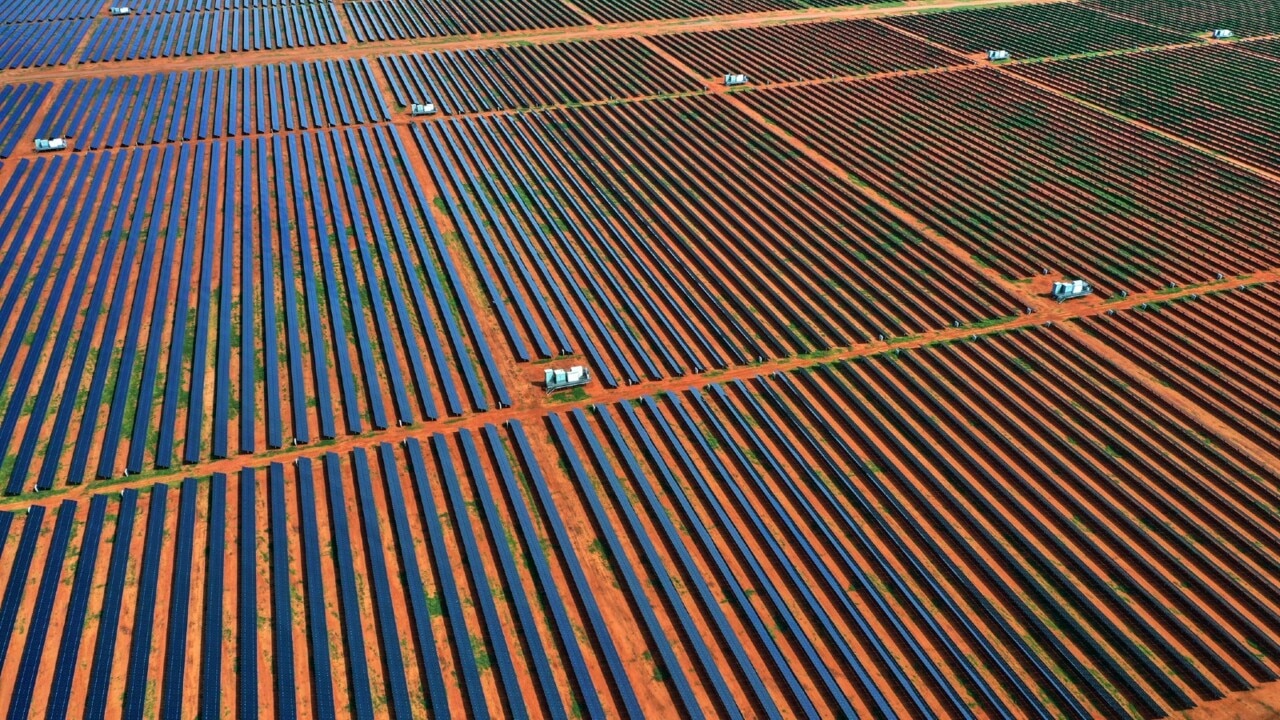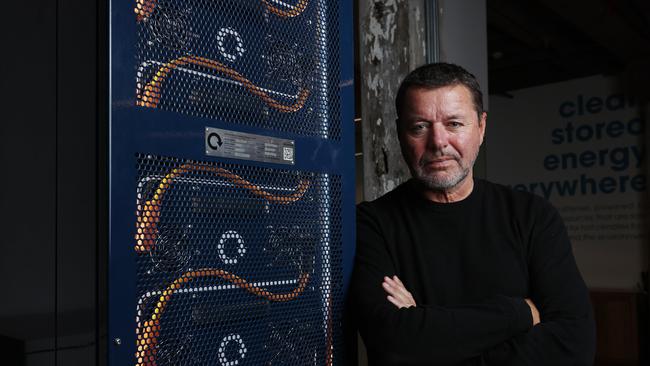Cyber expert says there’s ‘no space for failure of imagination’ in battery hack threat
Cyber experts say Australians cannot control the software in many home batteries and smart devices, including cheap ones from China, in the wake of Israel’s pager attacks.

Cyber expert Rachael Falk has called for a “concerted global approach” to protect solar batteries and smart home devices from malicious attacks after an Australian tech entrepreneur warned about Israeli-style exploding pager strikes.
Ms Falk, chief executive of the Cyber Security Co-operative Research Centre, said smart home devices had become ubiquitous, yet the security risks they posed were “only being considered now”.

Ms Falk was speaking after Energy Renaissance chief executive Brian Craighead warned the proliferation of home battery storage exposed Australians to malicious attacks, branding it a “clear and present danger”.
While Australia wasn’t facing any immediate threats, Mr Craighead said Australians could not control the software in many home batteries, including cheap ones from China.
Ms Falk – who has also warned malicious state actors and cyber criminals could “poison artificial intelligence data sets” – said there was “no space for failure of imagination” in regard to the risks internet-connected home devices posed.
“IoT (internet of things) devices are ubiquitous in our everyday lives, yet when it comes to cyber security, the serious risks associated with the proliferation of IoT are really only being considered now,” she said.
“These devices range from everyday devices like phones and fridges through to sophisticated devices that underpin essential services and critical infrastructure, like power. This includes solar storage batteries and solar inverters, upon which the increasing number of household solar power systems rely.
“Put simply, as internet-connected devices, they are susceptible to malicious cyber threats.”
Hackers have infiltrated devices such as baby monitors to spy on families, webcams have been hijacked to take down computer networks, and home thermostat settings have been raised. Most such devices lack the antivirus protection and security updates found in PCs and smartphones. Ms Falk said a “concerted global approach is required, taking into consideration supply chains, unforeseen threats and unintended consequences” to combat the threat.
But, Western countries have adopted different strategies.
The US government announced last week it would prohibit the use of internet-connected cars containing Chinese software and hardware amid fears they could cause accidents or allow hackers to infiltrate critical infrastructure.
Despite calls for the Australian government to take action, Climate Change Minister Chris Bowen said the Albanese government wouldn’t replicate the US ban, and Chinese ambassador Xiao Qian said his country’s EVs would help Australia deliver its promised carbon emissions cuts.
“We won’t be banning vehicles made in any particular country,” Mr Bowen said.
“We’ll continue to work with all the relevant agencies to ensure that all necessary arrangements are in place. But I want Australians to have more choice of vehicles to buy, not less.”
Mr Xiao said Chinese EVs posed no security risk, and would play an important role in tackling climate change. “Let’s not over-interpret or exaggerate. Let’s do business following the economic rules,” he said.
“If China and Australia can co-operate to address climate change it will tremendously help both countries to succeed in their climate change goals.”

Mr Craighead said battery management software – which ensured batteries were charged safely, maintained optimal temperatures and functioned correctly – was the “cornerstone of the security threat”.
Mr Craighead said a breach in this system could lead to severe consequences, from data leaks to physical damage, endangering human lives and infrastructure. He has called on the government to insist that all batteries be certified as cyber secure, and has developed a system with the CSIRO. “We could do it tomorrow,” Mr Craighead said.
Liberal senator James Paterson has demanded the government take action, as the Coalition did when it blocked Huawei from the nation’s 5G rollout.
“The Albanese government should urgently act to address this cyber and national security risk before it is too late,” Senator Paterson said.
“It is not in our national interest for our number one supplier of connected batteries to be an authoritarian superpower who are also our number one source of state-backed cyber attacks, espionage and foreign interference,” Senator Paterson said.
“It’s even worse these products are unregulated for cyber security. And it’s not the only vulnerable part of the renewables supply chain – the smart solar inverters market is also dominated by China, including through companies like Huawei.”
Originally published as Cyber expert says there’s ‘no space for failure of imagination’ in battery hack threat




